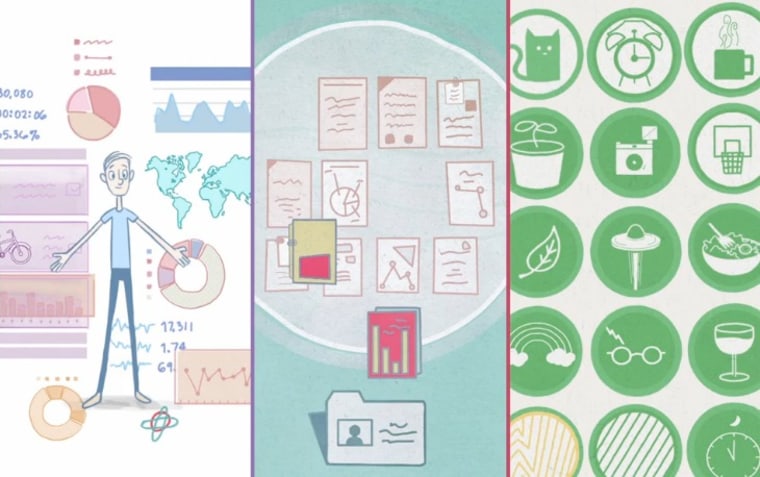IBM has released its yearly "5 in 5" predictions for the technological innovations that could change the way we live over the next five years, and this time it's all about "big data." We generate so much information every day, yet it's rarely put to good use — IBM thinks that's about to change, with profound implications for everything from medical care to window shopping.
Big data is a term that gets thrown around a lot, and for good reason: Between online tracking, intelligent city infrastructure, and phones and tablets taking the place of paper and pen, more data is being accumulated than ever.
But much of that data has yet to be used to actually make things better. We can tell where traffic is and why it's there — but can't prevent it. We can track a student's progress with a digital permanent record — but we can't adjust their lesson plan. IBM's prediction is that the next five years will bring practical applications of these piles of bits and bytes. And the five predictions they make are:
-The classroom will learn you-Buying local will beat online-Doctors will use your DNA to keep you well-A digital guardian will protect you online-The city will help you live in it
Take the classroom, for instance. Children who do all their homework, reading and testing on a tablet or computer can be evaluated and tracked continually and independently. Is one excelling in math but lagging behind on reading comprehension? A teacher can dial up the lessons in one and examine the shortcomings in the other with a few taps — no conference needed, no staying after class.
It'll be much different from the way the last generation was schooled, but kids and teachers both seem to benefit.
"The kids adapt to it instantly," said Bernard Meyerson, IBM's chief innovation officer, in a phone interview with NBC News. "These kids are digital, they know how to do this stuff."
"If we don't focus on education the way we focus on health care and other issues, we're in deep trouble," he continued.
DNA, too, is a treasure trove of information just waiting to be truly taken advantage of. What if instead of blindly trying a cancer treatment, that treatment could be cross-referenced against your DNA — or even better, against others whose DNA is similar? The database would have to be massive (and confidential, naturally), and the computing power to wrangle it immense, but the benefits are potentially just as huge.
What about cities, where there are cameras on every corner, car-sensing plates at every traffic light and meters at every place where electricity and water are distributed? The information generated by a city's denizens as they go about their everyday lives could improve things immensely. And you don't need to go around installing high-tech gizmos, either.
"You can do some amazing stuff with the infrastructure that's already there," explained Meyerson. "You can actually make those real-time adjustments in the processes of the city, without adding anything, frankly."
What's missing isn't the hardware, it's the software. At the center of all the data created by millions of people, cars and dollars should be a brain, nipping and tucking here and there to save a few thousand gallons of water, get people home a few minutes earlier, or dispatch police or firemen before anyone thinks to call them.
Of course, it's not all such serious business. You yourself produce a lot of data that's only relevant to you: how quickly you go through a gallon of milk, how many miles you've walked in your shoes, what recipes you like. IBM is working on a sort of digital personal assistant that looks at all that info and not only reminds you to pick up more milk, but recommends spices for that curry you've been perfecting.
"We have a 'chef' function that looks at the tastes you like, and literally suggests combinations of flavors you might like," said Meyerson. Alternatively, it might let you know that shoes you'd considered buying are on sale at the shop you're about to pass by, or warn you that the shop you're already in doesn't have them in your size.
You can read the rest of the predictions, as well as past "5 in 5s," at IBM's A Smarter Planet page. Sure, they sound like science fiction now, but five years is a long time in tech. Come 2018, we'll see whether these ideas were too ambitious, or not ambitious enough.
Devin Coldewey is a contributing writer for NBC News Digital. His personal website is coldewey.cc.
